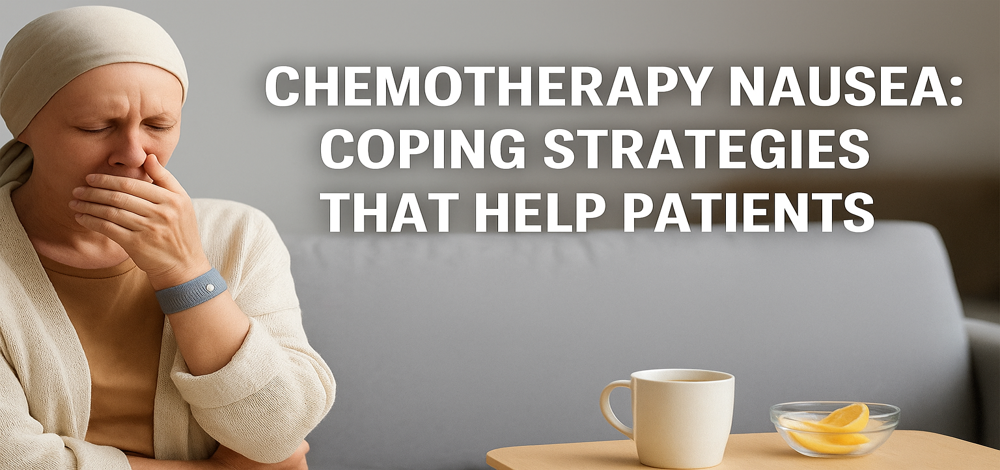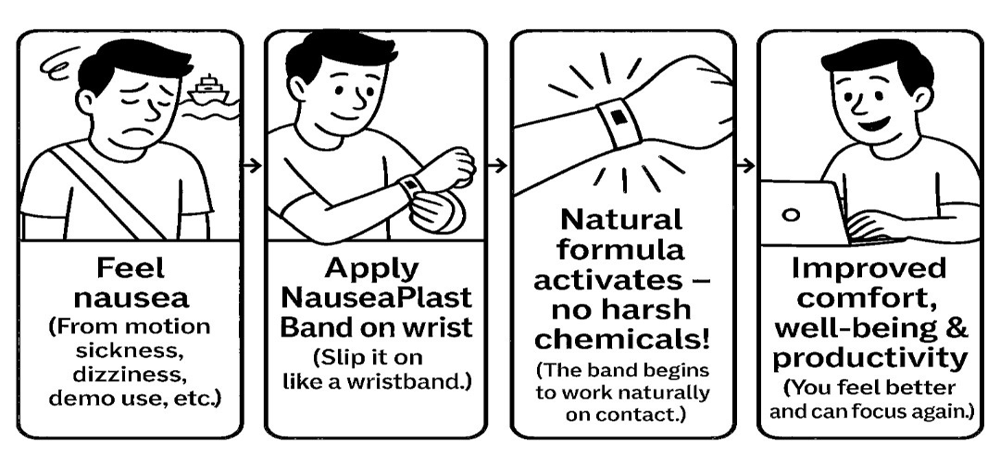Nausea is one of the most common—and distressing—side effects of chemotherapy. While modern medicine has made great strides in reducing its severity, many patients still struggle with this unpleasant sensation that can interfere with daily life, nutrition, and emotional well-being. Fortunately, there are effective coping strategies that can help.
In this blog, we'll explore why chemotherapy causes nausea, how it can be managed, and practical tips that can make a real difference during your treatment journey.

Why Does Chemotherapy Cause Nausea?
Chemotherapy drugs are powerful—they target fast-growing cancer cells, but they can also affect healthy cells in your gastrointestinal (GI) tract and brain. This disruption can lead to:
- Acute nausea (within 24 hours of treatment)
- Delayed nausea (more than 24 hours after treatment)
- Anticipatory nausea (triggered by the thought of chemo due to past experiences)
Every patient is different. Some may experience intense symptoms; others may barely notice. The key is to stay ahead of it with a personalized strategy.
Medical Support: Your First Line of Defense
- Antiemetic Medications
Doctors typically prescribe anti-nausea medications (antiemetics) such as:
- Ondansetron (Zofran)
- Granisetron
- Aprepitant
- Dexamethasone
- Newer Delivery Options
Transdermal products like the NauseaPlast Band (a discreet wearable anti-nausea patch) can offer continuous relief for patients who struggle with pills or injections. These options are worth discussing with your oncologist.
Practical Coping Strategies That Really Help
- Eat Smart and Small
- Eat small, frequent meals throughout the day—never on an empty stomach.
- Choose bland, easy-to-digest foods like crackers, toast, rice, or applesauce.
- Avoid greasy, spicy, or strong-smelling foods.
- Try cold or room-temperature meals, which are often easier to tolerate.
- Stay Hydrated (But Gently)
- Sip on clear fluids (water, herbal tea, broth) throughout the day.
- Suck on ice chips or frozen fruit if fluids are hard to tolerate.
- Avoid carbonated drinks that may cause bloating.
- Ginger and Peppermint
- Ginger tea, ginger chews, or capsules may reduce nausea naturally.
- Peppermint oil or tea has soothing effects on the digestive system.
- Aromatherapy and Acupressure
- Scents like lemon or lavender may ease nausea for some people.
- Acupressure wristbands (such as Sea-Bands) press on the P6 (Nei-Kuan) point, which has been shown to relieve nausea in some patients.
- Breathing and Mindfulness Techniques
- Practice deep breathing, meditation, or gentle yoga.
- Try guided imagery or progressive muscle relaxation to calm the body and distract the mind.
- NauseaPlast Band
NauseaPlast Band is a natural, effective, and easy-to-use solution designed to provide fast and long-lasting relief from nausea—anytime, anywhere. With its drug-free formula and no known side effects, it offers a safe alternative for those suffering from motion sickness, pregnancy-related nausea, chemotherapy side effects, or post-surgery discomfort. Its convenient application and chemical-free composition make it a reliable choice for people seeking sustainable wellness. More than just a product, NauseaPlast represents a commitment to health, empowerment, and environmental responsibility.

